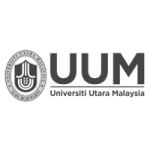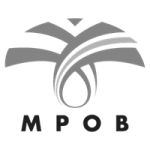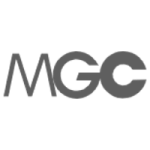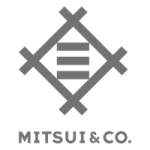IMS (ISO 9001:2015, ISO 14001:2015 & ISO 45001:2018) Lead Auditor Training Course
Training program overview
An audit is a systematic and documented process of gathering and evaluating evidence to determine whether specified requirements are fulfilled. Audit evidence is used to assess the effectiveness of a management system in meeting established criteria. To ensure objectivity and impartiality, auditors must maintain independence from the audited activities.
This independence is essential for a credible and reliable audit process. In the context of Integrated Management Systems (IMS), a lead auditor is a highly skilled professional responsible for planning, conducting, and reporting on audits of complex management systems. Lead auditors must possess a deep understanding of multiple management systems standards, such as ISO 9001, ISO 14001, and ISO 45001.
Training Objectives
- Understand and Apply ISO Standards: Gain a comprehensive understanding of the key principles and requirements of relevant ISO standards, such as ISO 9001, ISO 14001, and ISO 45001.
- Expert Lead Auditor Competencies: Develop the necessary skills and knowledge to effectively plan, conduct, and report on management system audits, including Planning, Auditing technique,s and others
- Enhance Critical Thinking and Problem-Solving Skills: Develop the ability to analyze complex systems, identify potential risks, and propose improvement opportunities.
- Improve Communication and Interpersonal Skills: Enhance communication and interpersonal skills to interact with auditees and stakeholders effectively.
- Contribute to Organizational Excellence: Apply the principles of continuous improvement to drive organizational performance and sustainability.
By focusing on these objectives, participants will be well-prepared to excel as lead auditors and contribute to implementing and maintaining integrated management systems.
Training Scope / Guideline
- Quality Management System — Standard Requirements (ISO 9001:2015)
- OSH Management systems — Standard Requirements (ISO 45001:2018)
- Environmental management systems — Requirements with guidance for use (ISO 14001:2015)
- Guidelines for auditing management systems (ISO 19011:2018). The latest version of guidelines for auditing by ISO in the year 2018
Target Participant
Quality Manager, Management Representative, Environmental Committee Chairman, Safety and Health Officer, Document Controller, Internal Auditor
Training outline (5-day duration course)
Fundamental Integrated Management System
- Understand the fundamentals of the auditing process based on the latest guidelines released by ISO.
- Value adding on existing management system throughout an audit execution
Core Auditing Principles and Practices:
- How to develop a constructive audit program
- Understanding the purpose and benefits of auditing
- Principles of auditing (impartiality, independence, objectivity, etc.)
- Audit planning and preparation
- Conducting effective interviews and observations
- Document review and analysis
- Nonconformity identification and reporting
- Root cause analysis and corrective action verification
- Audit reporting and closure
- Follow-up audits and surveillance audits
Ethical Considerations:
- Maintaining confidentiality and impartiality
- Avoiding conflicts of interest
- Professional conduct and behavior
Standard Requirement Review (ISO 9001, ISO 45001, ISO 14001):
- Detail reviews on ISO 9001:2015, ISO 45001:2018 & ISO 14001:2015
- Typical objectives are evidence against company QMS procedure and work instruction.
Breakdown of Key Requirements for ISO 9001, ISO 45001, and ISO 14001:
- ISO 9001:2015 – Quality Management Systems:
- Understanding the structure and requirements of ISO 9001:2015.
- Process approach and Plan-Do-Check-Act (PDCA) cycle.
- Quality management principles and their application.
- Risk-based thinking in quality management.
- Documented information requirements.
- Performance evaluation and continual improvement.
- ISO 14001:2015 – Environmental Management Systems:
- Understanding the structure and requirements of ISO 14001:2015.
- Environmental aspects and impacts identification.
- Compliance obligations.
- Environmental objectives and planning to achieve them.
- Operational control and emergency preparedness.
- Evaluation of environmental performance.
- ISO 45001:2018 – Occupational Health and Safety Management Systems:
- Understanding the structure and requirements of ISO 45001:2018.
- Hazard identification and assessment of risks and opportunities.
- Legal and other requirements.
- OH&S objectives and planning to achieve them.
- Operational planning and control.
- Performance evaluation and monitoring.
Specific to IMS:
- Integration of management systems (e.g., ISO 14001, ISO 45001)
- Identifying synergies and potential conflicts between systems
- Developing an integrated management system policy and objectives
- Implementing an integrated risk management approach
- Conducting integrated audits
- Evaluating the effectiveness of the IMS
Legal and Regulatory Requirements:
- Specific legal requirements related to the organization’s industry and operations
- Understanding how legal requirements are integrated into the IMS
Management of findings:
- Justification of findings – NCR, Opportunity for Improvement, Observation, etc.
- Correction, Corrective Action, and Preventive Action
- Review the effectiveness of the action
- Follow-up Activities
- Audit Reporting
- Reviewing audit findings
Communication and Interpersonal Skills:
- Correction, Corrective Action, and Preventive Action
- Effective communication with auditees at all levels
- Active listening and questioning techniques
- Handling difficult situations and resolving conflicts







